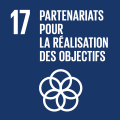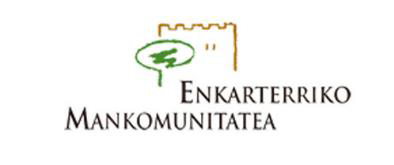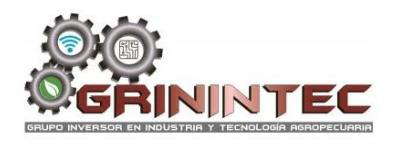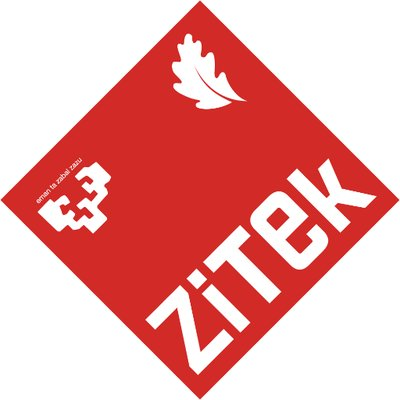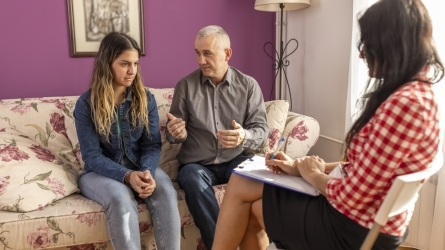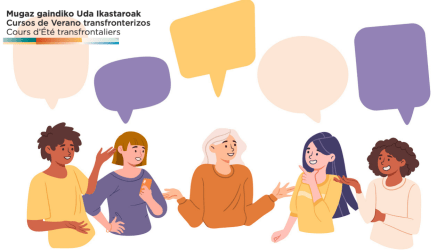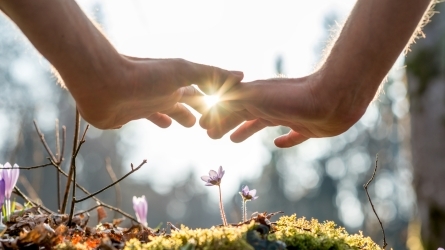
Biotecnología, Biomedicina y Biomimesis en armonía con la Naturaleza, nuevas perspectivas
Description
Through this Summer Course, the aim is to get the public to analyze and understand the importance of communicating and establishing bridges between scientific, technological and social disciplines that work in harmony with Nature,
in the current climate emergency situation. Furthermore, it is intended that they understand and participate in the solutions proposed from the different disciplines: Science, Technology, Medicine, Economics and Architecture, among others with the common denominator that they are harmonious with Nature. Innovative programs such as Harmony with Nature of the United Nations will be sought, which advocates providing Rights to Nature; as well as, transdisciplinary solutions consistent with the previous program such as Biomimicry.
Objectives
Analizar, comunicar y establecer puentes entre las disciplinas científicas, tecnológicas y sociales que trabajan desde la armonía con la Naturaleza.
Impulsar perspectivas transdisciplinares para construir una Economía Ecológica y una Sociedad del conocimiento bioinspirada a partir de una ciencia holística con el propósito de implementar una civilización ecológica.
Aportar soluciones de programas innovadores como el de Harmony with Nature de Naciones Unidas que aboga por dotar de Derechos a la Naturaleza, la Economía Ecológica y los Objetivos de Desarrollo Sostenible (ODS).
Activity directed to
- University student
- Students not from university
- Teachers
- Professionals
In collaboration with
Program
17-09-2024
La primera jornada se celebrará en el Bizkaia Aretoa UPV/EHU de Bilbao
Registro / Erregistroa
Institutional Opening session. Speaking order:
- Jon Barrutia Guenaga | Facultad de Economía y Empresa - Decano
- María Mercedes Sánchez | Ex-directora del programa Harmony with Nature, Organización de las Naciones Unidas, ONU
- Martín Pérez Garmendia | Presidente de la Mancomunidad de Municipios de las Encartaciones (Enkarterri)
Presentation by the Director of the activity
- Mª Estrella Sánchez Corchero | Universidad del País Vasco/Euskal Herriko Unibertsitatea (UPV/EHU)
- Hernando Bernal Zamudio | Biomimetic Sciences Institutre (BSI), Red Internacional, Interuniversitaria e Interinstitucional de estudios sobre Biomimesis
BIOTECNOLOGÍA-BIOMEDICINA
“Los males de la Inteligencia Artificial“
- Víctor Echebarria Ecenarro | Universidad del País Vasco/Euskal Herriko Unibertsitatea (UPV/EHU)
“La evolución de los medicamentos: de la fitoterapia a la biomedicina moderna: más de 5.000 años de historia“
- Riccardo Scarin | Centro para la Investigación Cooperativa en Biociencias/ Center for Cooperative Research in Biosciences (CICbioGUNE), País Vasco
Break
“Biofarmacéuticas: fábricas para la vida“
- Carmen San Francisco | Directora del Biomimetic Sciences Studies
“Diseño bioinspirado en la Naturaleza; hidrodinámica de la piel del tiburón al servicio de la optimización de dispositivos de energías renovables marinas“
- Jesús María Blanco Ilzarbe | Catedrático Escuela de Ingenieros de Bilbao, Universidad del País Vasco, Experto Programa Harmony with Nature, ONU
Round table: “Nuevas tendencias en la medicina en el contexto del Cambio Climático y la reivindicación del papel de la Naturaleza“
- Lucía Gallego Andrés | Profesora de Microbiología Médica, directora del laboratorio de Antibióticos y Bacteriología Molecular y representante de la Facultad de Medicina y Enfermería en el Plan Nacional frente a las Resistencias a Antibióticos (PRAN) / Universidad del País Vasco
- María Trinidad Herrero Ezquerro | Neurociencia Clínica y Experimental (NiCE). Catedrática de Anatomía Humana de la Universidad de Murcia y miembro de la Real Academia Nacional de Medicina
- Juan Antonio Ortega García | Director de la Unidad de Salud Medioambiental del Servicio de Pediatría / Hospital Universitario Virgen de la Arraixaca
Pausa comida
“Pensando en la salud humana como el de la Naturaleza“
- Luis Orlando Páez Henao | Universidad de Colombia - Director de área de investigación de la Universitaria de Colombia. Director del Área Neuriciencias de Choco y de l Empresa CENIT Valledupar (Participation by zoom)
“Estrategias bioinspiradas para la agricultura en zonas aridas“
- Fernando Enrique Cabrales Gómez | Universidad de Tarapacá, Chile
“Talleres de Biomimetización, estrategia para construirnos un mundo mejor“
- Eva Batanero Cremades | Profesora Titular del Departamento de Bioquímica y Biología Molecular UCM / Universidad Complutense de Madrid
Closing session
BIOTECNOLOGÍA y BIOMEDICINA: NUEVAS PERSPECTIVAS PARA UNA CIVILIZACIÓN en ARMONÍA CON LA NATURALEZA
- Fernando Javier Valladares Ros | Profesor de investigación en el Museo Nacional de Ciencias Naturales del CSIC y profesor de Ecología en la Universidad Rey Juan Carlos (Participation by zoom)
18-09-2024
Esta jornada se celebrará en Carranza (Bizkaia)
ASAMBLEA EUROPEA DE LA TIERRA, programa Armonía de la Naturaleza, ONU
Presentation by the Director of the activity
- Hernando Bernal Zamudio | Presidente, experto / Biomimetic Sciences Institute (BSI) y Asociación Amassunu para impulso de la Interculturalidad y la Biomimesis Universidad del País Vasco; Programa Harmony with Nature, ONU
- Mª Estrella Sánchez Corchero | Profesora, Experta / Universidad del País Vasco, Programa Harmony with Nature, ONU
“APERTURA: La Biotecnología, Biomedicina y Biomimesis en armonía con la Naturaleza“
- María Mercedes Sánchez | Ex-directora del Programa Armonía con la Naturaleza, ONU
Round table: “Sociología Ecológica“
- Natalia Simón | UCLM (Moderator) (Participation by zoom)
- Juan Antonio García Martín | UCLM (Participation by zoom)
- Julio César de Cisneros | UCLM (Participation by zoom)
Round table: “Derechos de la naturaleza“
- Teresa Vicente | Universidad de Murcia (Moderator)
- Rubén Martínez Dalmau | Universidad de Valencia
- Susana Borrás Pentinat | Universidad Rovira i Virgili - Profesora
Break
Round table: “Economía Ecológica“
- Mª Estrella Sánchez Corchero | UPV/EHU (Moderator)
- Unai Tamayo Orbegozo | UPV/EHU
- Erik Gómez Baggethun | Presidente Asociación Internacional de Economistas Ecológicos, ISEE (Participation by zoom)
- Jesús María Blanco Ilzarbe | UPV/EHU
Round table: “Ciencia Holística“
- Hernando Bernal Zamudio | BCI (Moderator)
- Ibone Ametzaga Arregi | UPV/EHU, UNESCO
- Lucía Gallego Andrés | UPV/EHU
- Carlos Ander Garbisu Crespo | Neiker, UPV/EHU
- Henry Dicks | Universidad de Lyon
Conclusiones
Closing session
La urgencia de una Asamblea de la Tierra
- María Mercedes Sánchez | Harmony with Nature, ONU
Pausa comida
“El arte bioinspirado una estrategia para la salud humana y de los ecosistemas“
- Ludovica Rossi | Universidad Politécnica de Cataluña - Architect & Phd Student
“Medicina Espacial y Diseño Aeroespacial“
- Oscar Alberto Arenales Vergara | Tokyo University of Marine Science and Technology - TUMSAT Japón - Guest Professor
Round table: “Biomimesis“
Microbiología de suelos para la bioremediación en armonía con la Naturaleza
- Carlos Ander Garbisu Crespo | Director Científico de NEIKER, Instituto Vasco de I+D Agrario
Biomimesis y comunicación inteligente para la regeneración de la vida
- Alejandro Álvarez Novell | Universidad de Málaga
Proyectos de Agroindustria Bioinspirada 4.0: para vivir en armonía con la Naturaleza
- William Moreno | Grupo Empresarial GRINNITEC, Colombia
- Rafael Henao López | Grupo Empresarial GRINNITEC, Colombia
“Proyectos de empresas biomiméticas incubadas en la UPV/EHU“
- Noemi Peña Miguel | Directora de Emprendimiento y Transferencia del campus de Bizkaia de la UPV/EHU. Responsable de Zitek
“Conferencia de Clausura“
- Henry Dicks | Universidad de Lyon
Directors

Mª Estrella Sánchez Corchero
UPV-EHU, experta en Economía Ecológica del programa Harmony with Nature, HwN, de la Organización de Naciones Unidas, ONU
Graduate in Economics and Business Studies, specialising in International and Development Economics from the University of the Basque Country. PhD in Economic Anthropology, MA in Chinese Studies, MA in Economic Analysis and BA in Economics and Business Studies, lecturer at the Universities of the Basque Country, European University of Madrid and Isabel I of Castile. Member of Harmony With Nature of the United Nations, as well as of the International Association of Ecological Economics. She is also a member of the Governing Board of the Basque Association of Economists and of the Teaching and Researchers, Urban Planning and Strategic Plan Commissions. He received the 2nd prize for business creation organised by the Basque Government Department of Economy in 1997. I have a PL2 in Basque which allows me to teach in Basque.
Hernando Bernal Zamudio
UPV/EHU, experto en Ciencia Holística del Programa HwN de la ONU
Agrologist, Master in Rural Development and Ph.D in Development Studies and International Economics, Professor-Researcher at the Biomimetic Sciences Institute (BSI): Biomimetic Sciences Institute (BSI), founder of the International, Inter-University and Inter-institutional Network on Biomimicry Studies (RI3BIOMIMICRY NETWORK), founder of the International Network of Ecological Ruralities (RIRES), member of the Spanish Network of Development Studies (REEDES), member of the Society for Ecological Economics (ISEE), Founder of the Amassunu Association for the promotion of Interculturality and Biomimicry University of the Basque Country/Euskal Herriko Unibertsitatea UPV/EHU. And, expert in: Ecological Economics at the Institute of Latin American Studies (ILAS) of Hankouk University in Seoul (South Korea) and Holistic Science of the Harmony with Nature Programme (HwN) of the United Nations (UN).
Speakers
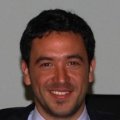
Alejandro Álvarez Novell
PhD. in Strategic Communication. Research Professor (University of Málaga) at ReBiCom "Regeneration, Wellbeing and Positive Communication" and "Biomímesis Málaga". Director of the Latin American Communication Monitor (LCM-EUPRERA). Editor of Pangea Magazine (RAIC). Co-founder and advisor of Cronopios | Communication with purpose. Regenerator and biomimetic pollinator.
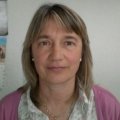
Ibone Ametzaga Arregi
UPV/EHU
Profesora agregada del Área de Ecología de la Universidad del País Vasco (UPV/EHU). Ha sido profesora en la Universidad Pública de Navarra y en la Universidad de Vigo y ha trabajado en el centro de investigación NEIKER (2002-2003). Ha sido presidenta de la sección de ciencias naturales de Eusko Ikaskunta/Sociedad de Estudios Vascos (1995-2006). Ha realizado estancias en diversas universidades internacionales como University of Aberdeen, el Imperial College of Science and Technology, University of California at Santa Barbara o la University of Oxford. Ha dirigido varias Tesis doctorales, de Grado y de Máster y ha publicado más de 50 artículos en revistas científicas, libros y capítulos de libro. Su temática de investigación se centra en el estudio de la biodiversidad, principalmente en ecosistemas terrestres con el objetivo de evaluar los impactos sobre la misma y desarrollar actuaciones para mejorar su situación.
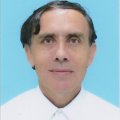
Oscar Alberto Arenales Vergara
Architect, Master in Aerospace Architecture, Ph.D, in Application of Space Technologies. Currently researcher at the Haute École d'art et Design-Genève (Italy) and Visiting Professor at Tokyo University of the Navy (TUMSAT), Japan. In 1984 he started working on extreme climate housing in Sweden; in 1987 he participated in the study of the European Orbital Station and in 1989 he worked on the construction of the European ship Halios. Then in 1990 he went to the United States to work for NASA on joint research with former astronaut Buzz Aldrin (Apollo 11) on the International Orbital Station and another on lunar bases. Back in France he created the Experimental Laboratory for Architectural Research.
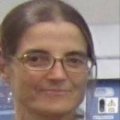
Eva Batanero Cremades
Degree in Biological Sciences, PhD in Biological Sciences. Professor of Biochemistry and Molecular Biology, Faculty of Chemical Sciences at the Complutense University of Madrid. She has supervised five doctoral theses, has participated in six patents, five research projects, three research contracts, five outstanding publications, 15 lines of research, among which are: Management of hybridomas and production of monoclonal antibodies against thymic stromal dendritic cells; Study of the expression of neuro-endocrine hormones in the human thymus: Relationship with sex, age and state of disease-induced involution... among others. Several activities at the National Museum of Natural Sciences (Madrid, Spain) to highlight: ExperimentÁrea Biomímesis. "Biomimicry: Re-Innovating with Humboldt". Exhibition "17 x 1 Better World". Poster 27b: "Contribution of Biomimicry to the SDGs". And, more than 50 Biomimicry workshops in public and public schools in the city of Madrid.
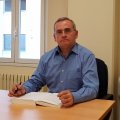
Jesús María Blanco Ilzarbe
Professor of the Department of Energy Engineering of the UPV/EHU. He holds a PhD in Industrial Engineering (1996). Msc. Cranfield Univ. (UK), in marine turbines where he is a visiting professor and made 3 research stays with MINECO grant. He has supervised 5 theses and currently has 7 doctoral students, 42 JCR, 59 international research papers and 27 teaching papers, co-author of 2 patents, 28 book chapters and 7 books. He has led more than 30 research projects as well as transfer contracts to the company in computational simulation (CFD). Regular referee of several JCR journals. 2 UNED awards (energy) and Academy of Sciences of Cuba 2016. Organizer of international congress (CMN'2013), member of scientific committee of several international congresses. Member of the Spanish Society of Numerical Methods in Engineering. Coordinator of Msc ERASMUS MUNDUS in offshore EERR (REM and REM+). IP research group GV (IT1314-19) in EERR.
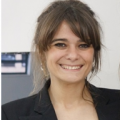
Susana Borrás Pentinat
Profesora de Derecho Internacional Público y Relaciones Internacionales, Postdoctoral Marie Skłodowska-Curie Fellow (H2020-MSCA-IF-2020) nº 101031252 CLIMOVE PROJECT, Università degli Studi di Macerata (Italy). Investigadora del Centro de Estudios de Derecho Ambiental de Tarragona- URV-España.
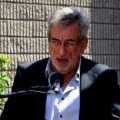
Fernando Enrique Cabrales Gómez
Degree in Economics, PhD in Applied Economics from the University of the Basque Country. Director of the School of Business and Administration. Dean of the Faculty of Administration and Economics at the University of Tarapacá, Chile. He has participated in six research projects and 16 international publications. Recorded 22 presentations as a panelist or speaker at conferences in Chile, Colombia, Peru, Argentina, Mexico and Spain. Project Evaluation, International Economics and Calculus for Economics in the Postgraduate and Postgraduate programmes of the U. de Tarapacá in Peru and Chile. and Chile. He currently teaches courses on Industrial Regulation in the Master of Telecommunications (Peru), Industrial Regulation in Electricity (Peru), Regionalization and Local Development (Master in Public Policy, UTA).
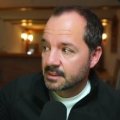
Julio César de Cisneros
Degree in Political Science and Sociology. PhD in Political Science. He is currently a lecturer on a doctoral contract at the University of Castilla La Mancha. He teaches Sociology of Education in the Faculty of Education at the University of Toledo. He has also taught in postgraduate courses at the Universidad Autónoma de Madrid (Spain), as well as in the Escorial Summer Courses (UCM). He has been a guest lecturer at the UAZ (Mexico). Author of several books and articles and participations in congresses related to Citizen Participation in Public Policy. Teacher training, use of Open Data for empowerment. His intellectual production in sociology of culture, sociology of knowledge and education, epistemology, semiotics, politics and political economy. He is currently working on a research project on Education and Communication, development of an educational itinerary through the use of Open Data and on a teaching innovation project based on the production of learning evidence through the use of free video editing software.
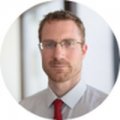
Henry Dicks
Philosopher of the environment and technology. PhD in environmental philosophy from Oxford University. Post-doctorate on biomimetic cities at the University of Lyon (France). Currently working as a professor of environmental ethics at Lyon 3 University and Shanghai University (China). His ongoing research project on the philosophy of biomimicry has led to publications in Philosophy and Technology, Environmental Ethics, Journal of Agricultural and Environmental Ethics, Ethics & the Environment, Architecture Philosophy and Environmental Philosophy, as well as a special issue on the subject in Environmental Values. His current research adds complexity to the scientific and technical approach to water by showing the importance of philosophical reflection and poetic imagination. His research focuses on the following areas of the Industrial Chair: "The poetics of water for sustainable development"; "Water quality"; "The analysis of the construction of rationality models".He is also involved in the PEPS project (funded by the CNRS), "Ecological Justice, Social Justice".He is currently writing a book entitled The Biomimicry Revolution: Foundations of a new philosophy.
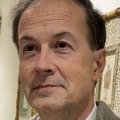
Víctor Echebarria Ecenarro
PhD in Physics and Professor of Systems Engineering and Automatics at the University of the Basque Country (UPV/EHU). He is co-founder of the Particle Beam Laboratory (IZPILab-Beam Laboratory), and Principal Investigator of the Experimental Instrumentation and Control Group of the UPV/EHU, where several research projects on particle accelerators and new scientific instruments are currently being developed. In this field he received the "Euskoiker Award" for Research in Exact and Natural Sciences. In recent years he has increased his collaboration in scientific dissemination, through the press, the digital platform The Conversation España, the magazine TELOS of the Telefónica Foundation and especially the Chair of Scientific Culture of the UPV/EHU.

Lucía Gallego Andrés
Universidad del País Vasco UPV/EHU
Lucía Gallego, Graduated in Medicine and Surgery, Master in Recombinant DNA Technology, PhD in Medicine and Surgery. Prof. of Medical Microbiology, Faculty of Medicine & Nursing, University of the Basque Country UPV/EHU. Representative of the Faculty of Medicine & Nursing in the National Plan Against Antibiotic Resistance (PRAN) of the Spanish Agency of Medicines and Health Products (AEMPS). Head of the Acinetobacter baumannii Research Group working on the study of antibiotic resistance and its dissemination through mobile genetic elements among clinical isolates causing serious hospital-acquired infections that have become a worldwide threat as multidrug-resistant isolates have dramatically risen worldwide. Collaborations with international groups from Germany, Egypt, Bolivia and UK, Author of 53 international publications, 9 book chapters, 79 international congress. Participation in 54 research projects, 28 as PI. Supervisor of 12 PhD, 12 MSc, 16 undergraduates, 6 OWSD mentoring
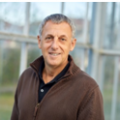
Carlos Ander Garbisu Crespo
NEIKER, Director Científico
Carlos Garbisu is the Scientific Director of NEIKER. He holds a degree in Biology from the University of the Basque Country, a Master of Science from the Imperial College of Science and Technology (London), and a PhD from King's College London. He did postdoctoral studies at the University of California at Berkeley. In 2018 he was recognised by the Basque Government for his research work. In 2019, 2020, 2021, 2022 and 2023 he was included in the "World's Most Influential Scientists" by researchers at Stanford University. He collaborates in several master's degrees where he focuses his teaching on soil microbiology. He investigates on the use of microbial ecology tools to assess the impact of disturbances on soil sustainability, as well as to monitor the effectiveness of biological remediation processes. He has 187 articles in the Scopus database, with an h-index = 55. He collaborates as an expert in the United Nations Harmony with Nature Network.

Juan Antonio García Martín
Degree in Medicine, MIR Specialist in Obstetrics and Gynaecology at the Hospital La Paz. Doctor in Medicine and Surgery from the Autonomous University. Sub-specialist in Reproduction at Yale University (USA). Professor of Gynaecology, Faculty of Health Sciences, and Director of the Master's Degree in Reproduction and Director of the Expert in Reproductive Nursing, Department of Medical Specialities and Professor at the Rey Juan Carlos University. Principal investigator of projects funded by the Ministry of Education and the Ministry of Health. 210 scientific articles in high impact international journals in his area of expertise, 30 chapters and 6 books. Co-Editor of the English journal Reproductive BioMedicine.
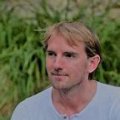
Erik Gómez Baggethun
FLS
Catedrático de Gobernanza Ambiental en la Universidad Noruega de las Ciencias de la Vida (NMBU) e investigador asociado de la Universidad de Oxford. Su investigación cubre diversas temáticas en los campos de las ciencias ambientales y de la sostenibilidad, con énfasis en la economía ecológica, la ecología política y la gobernanza ambiental. Es Presidente de la Sociedad Europea de Economía Ecológica (ESEE) y miembro del comité editorial de varias revistas científicas internacionales. Erik es coautor del informe ‘La Economía de los Ecosistemas y la Biodiversidad’ (TEEB) y trabaja como experto en valoración para el Panel Intergubernamental de la Biodiversidad y los Servicios de los Ecosistemas (IPBES).
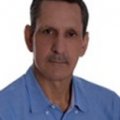
Rafael Henao López
Food Engineer from the Jorge Tadeo Lozano University Foundation, Bogotá, Colombia. Deputy Manager of the business group GRINNINTEC SAS, Orinoquia, Colombia. Director of the projects of the company "Emiratos, Servicios y Calidad SAS". Promoter of Sustainable Rural Development projects in the framework of the 2030 Agenda for Sustainable Development and the SDGs, for a responsible agribusiness, with emphasis on integrated systems of plant species of both tropical fruit and oilseed crops. And, development and promotion of dual-purpose agroecological livestock farming and aquaculture. Dynamiser of processes related to the social organisation of local producers, both in the economic modality of business and peasant agriculture. Expert in the formulation, implementation and monitoring of projects for international investment funds.

María Trinidad Herrero Ezquerro
Degree in Medicine and Surgery, PhD in Medicine and Surgery, Professor of Human Anatomy for 35 years and Human Embryology, Faculty of Medicine, University of Murcia. She has three Master's Degrees in her speciality, has obtained four Official University Diplomas and postdoctoral stays. She has taught Human Anatomy at several universities and in various undergraduate and postgraduate courses, preferably in Medicine. She has been (is) a visiting lecturer at universities in Chile, Hungary, Italy, China and Canada. She is a Full Member of the Spanish Royal National Academy of Medicine. Honorary Member of the Argentine Medical Association. Distinguished Visitor of the City of Buenos Aires. Vice-President of the Board of Trustees of the Fundación de la Hermandad Farmacéutica del Mediterráneo (HEFAME). President of the Association of Women Scientists of Murcia, Lyceum of Science (since 2017). She was president of the Neurotoxicity Society and is a member of the Council. She continues her research stays and research collaborations at the University of Cambridge, Paris, University College London, Karolinska Institute in Stockholm and Università Sapienza di Roma.
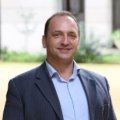
Rubén Martínez Dalmau
Professor of Constitutional Law in the Department of Constitutional Law and Political Science at the University of Valencia. Doctorate in Law and Postdoctorate. He holds a Diploma in Constitutional Law from the International Academy of Constitutional Law. He has been a researcher on European issues at the Jean Monnet European Pole, which depends on the European Commission. He participated in the technical drafting commissions of the three constituent assemblies. He has worked on the drafting of several laws on constitutional development. He teaches regular courses at the University of Valencia, participates with his teaching in several European and Latin American universities (Colombia, Ecuador, Bolivia, Brazil, Mexico, Argentina, Italy). In 2015 he was elected Member of the Spanish Congress for the constituency of Alicante, a position he held during the XI Legislature.
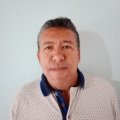
William Moreno
Agricultural technician. Manager of the GRINNITEC Business Group, promoter in the procurement and management of international investment funds for activities in the agro-industrial sector in the Orinoquia and Amazonia of Colombia. He is a driving force behind the development of initiatives related to the philosophy of the 2030 Agenda for Sustainable Development. Leader in the generation of processes such as social economy dynamics and promotion of quality university education to generate an economy and knowledge society focused on local natural resources. Strengthens the empowerment and diversification of the economies of the agricultural sector in the Andean-Orion piedmont, as well as in the Andean-Amazon piedmont of Colombia. Through its projects, it promotes the regeneration of vegetation cover in the Orinoquia and the Colombian Amazon.
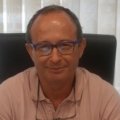
Juan Antonio Ortega García
Degree in Medicine and Surgery, PhD in Environment and Paediatric Cancer. Paediatrician, Head of the Environmental Health Unit of the Hospital Virgen de Arrixaca. International academic and scientific authority on environmental health, member of the Environmental Health Advisory Group of the International Paediatric Association (since 2018). He has actively participated in the Climate Summits COP25 and COP26, as ministerial delegate in meetings of the World Health Organization in Children's Environmental Health on different occasions. Worked in different cooperation projects with the NGO Médicos Mundi Murcia. Trainer of trainers in the modules on children's environmental health of the WHO-Europe2005. He has also collaborated with international stays and research groups at Mount Sinai School of Medicine and George Washington University (USA). Distinction for good practices of the National Health System in clinical practice (green leaf) (2016). International mentor for the Environmental Health Fellowship at the Ichan School of Medicine in New York (2005-present). Leader in children's health and the environment in the world. He teaches in Spain and Latin America.

Luis Orlando Páez Henao
Psychologist, Biologist and Chemist with emphasis on neuroscience and behavioural biology. Management of Qualified Registers. Institutional Accompaniment to Academic Peer Visit. Honorary Doctorate from the University of Florida (USA). Director of the centre of neurorehabilitation Quibdo, Department of Choco, Colombia. Director of the Research and Institutional Pedagogy Area of Universitaria de Colombia. Director of the Institute of Innovation and Entrepreneurship. Development of occupational health programmes. Development of social programmes in the city of Bogotá. D.C. Implementation of prevention, promotion and care strategies in first and second level centres in the areas of psychology, medical physiology, neurophysiology and neuropsychology. Rehabilitation work on problems of drug addiction and family and personal violence. Intervention with patients in the area of Mental Health and support for the therapeutic process. Development and implementation of educational software. Teaching in the areas of Neuroscience, Psychopathology, Mental Health, Chemistry and Biology".
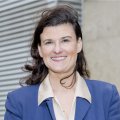
Noemi Peña Miguel
UPV/EHU
Noemí Peña-Miguel is a professor and researcher at the Faculty of Economics and Business. She holds a PhD in Economics and Business Administration from the University of the Basque Country (UPV/EHU). Extraordinary Doctorate Award from the UPV/EHU. Director of Entrepreneurship and Transfer of the Bizkaia Campus of the University of the Basque Country (UPV/EHU) since January 2018 and responsible for the Zitek program for the promotion of entrepreneurial culture and the creation of innovative and technology-based companies. She has worked as Deputy to Management, and to the Financial and Human Resources management in Grupo Urgatzi, a group of companies in the socio-health sector from 2000 to 2011.
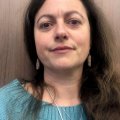
Ludovica Rossi
Ludovica Rossi es arquitecta por la Universitá degli Studi di Roma III (2004), ha realizado el Master de Tecnología en la Arquitectura (2010) y es doctora en Tecnologia de l'Arquitectura, de l'Edificació i de l'Urbanisme por la Escuela Técnica Superior de Arquitectura de Barcelona – Universitat Politecnica de Cataluña (2019). En su estudios de doctorado ha analizado el esqueleto interior de madera de los cactus para su aplicación a sistemas en flexión activa con banda de rodadura de neumáticos reciclados. Desarrolla su trabajo profesional de forma independiente entre las provincias de Tarragona y Barcelona, prevalentemente en el campo de la rehabilitación de edificios. Su actividad investigación se centra en la aplicación morfologías y estructuras bio-inspiradas (tensegrity, tenso estructuras, sistemas autoorganizados, etc.) con una atención a los aspectos ecológico y del ciclo de vida de los materiales. Integra la investigación bio-inspirada con instalación de arquitectura efímera.
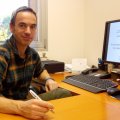
Unai Tamayo Orbegozo
UPV/EHU
Founding Partner of the Ri3 Biomimicry Network. PhD in Economics and Business Sciences from the UPV/EHU. Vice-Dean of Euskera, students and employability of the Faculty of CC. Economics and Business Studies of the UPV/EHU. Researcher in Ecological Marketing (Numerous articles on Waste Management, ecological purchasing behavior, environmental management strategies, ...). Actively involved in sustainability tasks (Member of the Environmental Management Committee of the Faculty, active participation in talks on sustainability of the university curriculum, ...). Lecturer in the Master of Sustainable Development and SDGs of the Unesco Chair and the Master in Circular Economy of the UPV/EHU, among others. Coordinator of the Thematic Study on Ecoinnovation in a collaboration project between UPV/EHU and Innobasque. Member of the Jury of the Invisible Film Festival. Member of the Scientific Committee of the AIMPN International Congress. Used to the use of active learning methodologies.

Fernando Javier Valladares Ros
Profesor de investigación del CSIC y profesor asociado de la Universidad Rey Juan Carlos
Fernando Valladares is a research professor at the CSIC and associate professor at the Rey Juan Carlos University. Fernando Valladares holds a PhD in biology, is a researcher at the Spanish National Research Council and associate professor at the Rey Juan Carlos University in Madrid. He is a highly cited scientist, with numerous research projects on the role of biodiversity and the impacts of climate change and human activity on ecosystems. In 2021 he received the Rey Jaume I Award, in the category of Environmental Protection, and the BBVA Foundation Environmental Communication Award. His concern for the environmental crisis has led him to actively disseminate information about the environmental crisis in various media and on his La Salud de la Humanidad channel on social networks. Both the details of his curriculum and all his informative production in multiple audiovisual formats and in press, radio and television can be found on his website: www.valladares.info
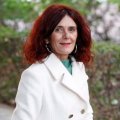
Teresa Vicente
Professor of Philosophy of Law, Deputy Director of the Centre for Cooperation and Development Studies (CECODE) at the University of Murcia. Chair of Human Rights and Rights of Nature at the same university. Chair of Nature at the same University. Her teaching and research profile as Professor of Philosophy of Law is "Theory of Justice and Human Rights". In this field, she has specifically researched the new paradigm of Ecological Justice and the Rights of Nature. In this context, she has participated as a speaker at national and international congresses, conferences and seminars, and has been invited to international meetings. She is the author of numerous publications dealing with ecological justice, children's rights, social rights and the rights of nature, among many others. Leader of the Popular Legislative Initiative (ILP) or Popular Legislative Initiative in Murcia that seeks to give legal personality to the Mar Menor and its entire basin. And on 5 April 2022, the Spanish Congress of Deputies voted by an overwhelming majority to speed up the drafting of a law for the Mar Menor to have legal personality, thus becoming the first ecosystem in Europe with its own rights.

Carmen San Francisco
Graduate in Business Administration and Management, with studies in Occupational Risk Prevention at the Polytechnic University of Catalonia. Executive producer in financial design and entrepreneur dedicated to the direction and financial management of innovation and audiovisual models. General Director of the Biomimetic Sciences Institute (BSI) Foundation. For more than 15 years she has been dedicated to the management and coordination of research projects both nationally and internationally within the framework of the "Horizon Programme". Director of the biopharmaceutical company BIOESTAM. Owner of the consulting company Catalana de Ingeniería and Director of Innovation and Design of Large Projects. She participates in networks such as the International Network of Biomimicry Studies (RI3BIOMIMICRY NETWORK), the International Network of Ecological Ruralities (RIRES), one of the professional experts of the "Harmony with Nature Programme" of the United Nations (UN).
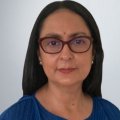
María Mercedes Sánchez
Maria Mercedes Sanchez has over 20 years of experience working in the field of sustainable development and intergovernmental processes, including the involvement of major groups and other stakeholders through every stage of the implementation process of a variety of UN mandates. He has worked extensively in the areas of research, report writing, project management and communications and has participated in four major UN Conferences on Sustainable Development: UNCED (1992), Rio+5 (1997), Rio+10 (2002), Rio+20 (2012), as well as in the preparations leading to the adoption of the 2030 Agenda adopted by the General Assembly in 2015. Since the inception of the Harmony with Nature Program of the United Nations in 2009, she has been the coordinator and leads the Program to support the principles of Earth jurisprudence in the implementation of the 2030 Agenda among the different stakeholders and, in particular, in reference to the implementation of Sustainable Development Goal 12.
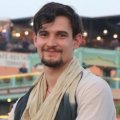
Riccardo Scarin
BSc in Pharmaceutical Sciences, MSc in Pharmaceutical Biotechnology. PhD in Atlas Molecular Pharma as part of the Marie Curie GLYTUNES ITN programme. Research in preclinical studies on Tyrosinemia Type 1, using techniques such as Nuclear Magnetic Resonance (NMR) and computational drug design. He is a scientist with a background in drug discovery and development, specialising in targeted therapies for rare diseases. His professional career includes enriching experiences as a visiting scientist at the Max Planck Institute of Colloids and Interfaces in Berlin, where he learned organic synthesis. He conducted research focused on the development of vaccine adjuvants with a focus on NMR and in-silico studies. Working at the Fondazione Edmund Mach (San Michele All'Adige, Italy), where he gained experience in the extraction of active metabolites from medicinal plants. This combination of experience in pharmaceutical biotechnology and the plant sector has allowed him to develop an interdisciplinary and multifaceted approach to scientific research.

Natalia Simón
Professor of Sociology, Department of Philosophy, Anthropology, Sociology and Aesthetics, University of Castilla-La Mancha, and researcher in the Environmental Psychology Research Group. She holds a PhD in Research in Humanities, Arts and Education and a degree in Sociology. She is trained in Market Research and Digital Marketing, Human Resources Management, Occupational Risk Prevention and Techniques and Applications in Social Research. She has teaching experience in different Spanish universities and more recent work experience as a programme coordinator for the Down Syndrome Federation of Castilla-La Mancha. Lines of research in education, social inequality, disability, gender and health. Speaker at national and international conferences and author of several publications. She is President of the Research Commission on Sociology of Disability of the Spanish Federation of Sociology, Dean of the Faculty of Political Science and Sociology of Castilla-La Mancha and member of CERMI Women CLM in the Spanish Committee of Representatives of People with Disabilities of Castilla-La Mancha. And, Expert of the UN "Harmony with Nature Programme".
Registration fees
| Face-to-face | Until 31-05-2024 | Until 17-09-2024 |
|---|---|---|
| 25,00 EUR | 59,00 EUR | |
| - | 84,00 EUR | |
| - | 71,00 EUR | |
| - | 59,00 EUR | |
| - | 71,00 EUR | |
| - | 71,00 EUR |
| Live online | Until 31-05-2024 | Until 17-09-2024 |
|---|---|---|
| 25,00 EUR | 59,00 EUR | |
| - | 84,00 EUR | |
| - | 71,00 EUR | |
| - | 59,00 EUR | |
| - | 71,00 EUR | |
| - | 71,00 EUR |
Venue
Bizkaia Aretoa-UPV/EHU
Avenida Abandoibarra, 3. 48009- Bilbao
Bizkaia
Bizkaia Aretoa-UPV/EHU
Avenida Abandoibarra, 3. 48009- Bilbao
Bizkaia
Sustainable development goals
Agenda 2030 is the new international development agenda approved in September 2015 by the United Nations. This agenda aims to be an instrument to favour sustainable human development all over the planet, and its main pillars are the eradication of poverty, a reduction in equality and vulnerability and fostering sustainability. It is a unique opportunity to transform the world up to 2030 and guarantee human rights for all.

3 - Good health and well-being
Guarantee a healthy life and foster the well-being of all people of all ages. Key issues: universal healthcare coverage, sexual and reproductive health, reduction in the number of road accident casualties, pollution and chemical products, reduction in maternal and neonatal mortality, the end of epidemics such as AIDS, combating hepatitis and other water-borne diseases, drug and alcohol prevention, control of tobacco.
More information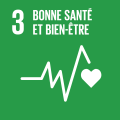
6 - Clean water and sanitation
Guaranteeing the availability and sustainable management of water and sanitation for everyone. Key issues: universal and fair access at an affordable price, access to sanitation and hygiene services, water quality, efficient use of water resources, end-to-end management, protection of water ecosystems, reduction of pollution, elimination of waste discharges, wastewater treatment.
More information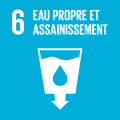
7 - Affordable and clean energy
Guaranteeing access to affordable, reliable, sustainable and modern energy for everyone. Key issues: universal access, increased proportion of clean energies, energy efficiency, research, fostering investments in energy infrastructures and clean technologies, modern and sustainable energy services.
More information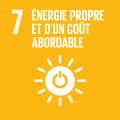
9 - Industry, innovation and infrastructure
Build resilient infrastructures, promote inclusive and sustainable industrialisation and foster innovation. Key issues: reliable, sustainable, resilient and quality infrastructures, inclusive and sustainable industrialisation, modernisation, clean and environmentally rational industrial technologies and processes, scientific research and improvement of technological capabilities, universal access to ICTs.
More information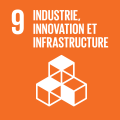
11 - Sustainable cities and communities
Make cities and other human settlements inclusive, safe, resilient and sustainable. Key issues: access to suitable housing and basic services that are secure and affordable, suitable and sustainable transport systems, inclusive urban planning, participative planning and management, protection of cultural and natural heritage, air-quality, green zones, and connections between urban, peri-urban and rural areas.
More information
14 - Life below water
Conserve and sustainably use the oceans, seas and marine resources for sustainable development. Key issues: reduction of marine pollution and acidification of the oceans, protection of marine ecosystems, re-establishment of the health and productivity of the oceans, conservation de coastal and marine areas, elimination of over-fishing and poaching, support for traditional fishing, increased scientific knowledge.
More information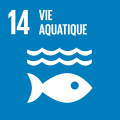
15 - Life on land
Protect, establish and foster the sustainable use of terrestrial ecosystems, manage forests sustainably, fight desertification, hold back and reverse the degradation of land and delay the loss of biodiversity. Key issues: the fight against desertification, reforestation, conservation, the regeneration and sustainable use of terrestrial ecosystems, natural habitats, biodiversity, invasive exotic species, integration of the values of ecosystems into planning, poaching.
More information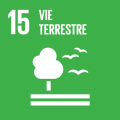
17 - Partnerships for the goals
Strengthen the means of implementation and revitalise the World Alliance for Sustainable Development. Key issues: mobilisation of resources, 0.7% of GDP for official overseas development aid, finances, cooperation in technology and innovation, ecologically rational technologies, skills building, universal and multilateral trade system, coherence on the legislative and institutional levels, availability of data, supervision, indicators and accountability.
More information